Quantum foundations concerns the conceptual and mathematical underpinnings of quantum theory. In particular, we search for novel quantum effects, consider how to interpret the formalism, ask where the formalism comes from, and how we might modify it. Research at Perimeter Institute is particularly concerned with reconstructing quantum theory from more natural postulates and reformulating the theory in ways that elucidate its conceptual structure. Research in the foundations of quantum theory naturally interfaces with research in quantum information and quantum gravity.
Format results
-
13 talks-Collection NumberC25015
Talk
-

Lecture - Causal Inference, PHYS 777
Robert Spekkens Perimeter Institute for Theoretical Physics
-

Lecture - Causal Inference, PHYS 777
Robert Spekkens Perimeter Institute for Theoretical Physics
-

Lecture - Causal Inference, PHYS 777
Robert Spekkens Perimeter Institute for Theoretical Physics
-

Lecture - Causal Inference, PHYS 777
Robert Spekkens Perimeter Institute for Theoretical Physics
-

Lecture - Causal Inference, PHYS 777
Robert Spekkens Perimeter Institute for Theoretical Physics
-

Lecture - Causal Inference, PHYS 777
Robert Spekkens Perimeter Institute for Theoretical Physics
-

Lecture - Causal Inference, PHYS 777
Robert Spekkens Perimeter Institute for Theoretical Physics
-

Lecture - Causal Inference, PHYS 777
Robert Spekkens Perimeter Institute for Theoretical Physics
-
-
Quantum Foundations (Elective), PHYS 639, January 6 - February 5, 2025
13 talks-Collection NumberC25010Talk
-

Lecture - Quantum Foundations, PHYS 639
Lucien Hardy Perimeter Institute for Theoretical Physics
-

Lecture - Quantum Foundations, PHYS 639
Lucien Hardy Perimeter Institute for Theoretical Physics
-

Lecture - Quantum Foundations, PHYS 639
Lucien Hardy Perimeter Institute for Theoretical Physics
-

Lecture - Quantum Foundations, PHYS 639
Lucien Hardy Perimeter Institute for Theoretical Physics
-

Lecture - Quantum Foundations, PHYS 639
Lucien Hardy Perimeter Institute for Theoretical Physics
-

Lecture - Quantum Foundations, PHYS 639
Lucien Hardy Perimeter Institute for Theoretical Physics
-

Lecture - Quantum Foundations, PHYS 639
Lucien Hardy Perimeter Institute for Theoretical Physics
-

Lecture - Quantum Foundations, PHYS 639
Lucien Hardy Perimeter Institute for Theoretical Physics
-
-
Causalworlds
63 talks-Collection NumberC24018Talk
-

-

Tutorial: Causal Inference Meets Quantum Physics
Robert Spekkens Perimeter Institute for Theoretical Physics
-

Counterfactual and Graphical Frameworks for Causal Modeling
Thomas Richardson University of Washington
-

-

Relating Wigner's Friend Scenarios to Nonclassical Causal Compatibility, Monogamy Relations, and Fine Tuning
Yìlè Yīng Perimeter Institute for Theoretical Physics
-

Modeling Latent Selection with Structural Causal Models
Leihao Chen University of Amsterdam, Korteweg-de Vries Institute for Mathematics
-

Zero Inflation as a Missing Data Problem: a Proxy-based Approach
Trung Phung Johns Hopkins Whiting School of Engineering
-

-
-
Quantum Theory (Core), PHYS 605, September 3 – October 4, 2024
14 talks-Collection NumberC24036Talk
-

Lecture - Quantum Theory, PHYS 605
Bindiya Arora Perimeter Institute for Theoretical Physics
-

Lecture - Quantum Theory, PHYS 605
Bindiya Arora Perimeter Institute for Theoretical Physics
-

Lecture - Quantum Theory, PHYS 605
Bindiya Arora Perimeter Institute for Theoretical Physics
-

Lecture - Quantum Theory, PHYS 605
Bindiya Arora Perimeter Institute for Theoretical Physics
-

Lecture - Quantum Theory, PHYS 605
Bindiya Arora Perimeter Institute for Theoretical Physics
-

Lecture - Quantum Theory, PHYS 605
Bindiya Arora Perimeter Institute for Theoretical Physics
-

Lecture - Quantum Theory, PHYS 605
Bindiya Arora Perimeter Institute for Theoretical Physics
-

Lecture - Quantum Theory, PHYS 605
Dan Wohns Perimeter Institute for Theoretical Physics
-
-
GPTs and the probabilistic foundations of quantum theory - mini-course
7 talks-Collection NumberC24021Talk
-

GPTs and the probabilistic foundations of quantum theory - Lecture
Alexander Wilce Susquehanna University
-

GPTs and the probabilistic foundations of quantum theory - Lecture
Alexander Wilce Susquehanna University
-

GPTs and the probabilistic foundations of quantum theory - Lecture
Alexander Wilce Susquehanna University
-

GPTs and the probabilistic foundations of quantum theory - Lecture
Alexander Wilce Susquehanna University
-

GPTs and the probabilistic foundations of quantum theory - Lecture
Alexander Wilce Susquehanna University
-

GPTs and the probabilistic foundations of quantum theory - Lecture
Alexander Wilce Susquehanna University
-

GPTs and the probabilistic foundations of quantum theory - Lecture
Alexander Wilce Susquehanna University
-
-
Quantum Foundations
13 talks-Collection NumberC24008Talk
-

Quantum Foundations Lecture
Lucien Hardy Perimeter Institute for Theoretical Physics
-

Quantum Foundations Lecture
Lucien Hardy Perimeter Institute for Theoretical Physics
-

Quantum Foundations Lecture
Lucien Hardy Perimeter Institute for Theoretical Physics
-

Quantum Foundations Lecture
Lucien Hardy Perimeter Institute for Theoretical Physics
-

Quantum Foundations Lecture
Lucien Hardy Perimeter Institute for Theoretical Physics
-

Quantum Foundations Lecture
Lucien Hardy Perimeter Institute for Theoretical Physics
-

Quantum Foundations Lecture
Lucien Hardy Perimeter Institute for Theoretical Physics
-

Quantum Foundations Lecture
Lucien Hardy Perimeter Institute for Theoretical Physics
-
-
Causal Inference & Quantum Foundations Workshop
26 talks-Collection NumberC23017Talk
-

Welcome and Opening Remarks
Elie Wolfe Perimeter Institute for Theoretical Physics
-

Tutorial 1
Robert Spekkens Perimeter Institute for Theoretical Physics
-

Graphical models: fundamentals, origins, and beyond
Steffen Lauritzen University of Copenhagen
-

Towards standard imsets for maximal ancestral graphs
Robin Evans University of Oxford
-

-

Correlations from joint measurements in boxworld and applications to information processing
Mirjam Weilenmann Institute for Quantum Optics and Quantum Information (IQOQI) - Vienna
PIRSA:23040107 -

Observational Equivalences Between Causal Structures with Latent Variables
Marina Maciel Ansanelli Perimeter Institute for Theoretical Physics
-

-
-
Quantizing Time
36 talks-Collection NumberC21004Talk
-

Welcome and Opening Remarks
-
Alexander Smith Saint Anselm College
-
Flaminia Giacomini ETH Zurich
-
-

-

Kappa-Minkowski: physics with noncommutative time
Flavio Mercati University of Naples Federico II
-

Quantizing causation
Robert Spekkens Perimeter Institute for Theoretical Physics
-

Non-causal Page-Wootters circuits
Veronika Baumann Institute for Quantum Optics and Quantum Information (IQOQI) - Vienna
-

Quantum reference frames for space and space-time
Časlav Brukner Institute for Quantum Optics and Quantum Information (IQOQI) - Vienna
-

-

A New Perspective on Time Reversal Motivated by Quantum Gravity
Abhay Ashtekar Pennsylvania State University
-
-
Quantum Gravity 2020
22 talks-Collection NumberC20031Talk
-

Welcome and Opening Remarks
Bianca Dittrich Perimeter Institute for Theoretical Physics
-

Approaches to Quantum Gravity: Key Achievements and Open Issues
Hermann Nicolai Max-Planck-Institut für Gravitationsphysik
-

Quantum gravity from the loop perspective
Alejandro Perez Aix-Marseille University
-

Lessons for quantum gravity from quantum information theory
Daniel Harlow Massachusetts Institute of Technology (MIT)
-

Understanding of QG from string theory
Herman Verlinde Princeton University
-

Progress in horizon thermodynamics
Aron Wall University of Cambridge
-

Asymptotically Safe Amplitudes from the Quantum Effective Action
Frank Saueressig Radboud Universiteit Nijmegen
-

The Remarkable Roundness of the Quantum Universe
Renate Loll Radboud Universiteit Nijmegen
-
-
Indefinite Causal Structure
26 talks-Collection NumberC19049Talk
-

-

10 years of the quantum SWITCH: state of the art and new perspectives
Giulio Chiribella University of Hong Kong (HKU)
-

Cyclic quantum causal models and violations of causal inequalities
Ognyan Oreshkov Université Libre de Bruxelles
-

TBA
Laura Henderson University of Waterloo
-

Composing causal orderings
Aleks Kissinger University of Oxford
-

Quantum principle of relativity
Andrzej Dragan University of Warsaw
-

-

What happens when we quantize time?
Alexander Smith Saint Anselm College
-
-
PSI 2019/2020 - Quantum Theory (Branczyk/Dupuis)
14 talks-Collection NumberC19038Talk
-

-

-

-

-

-

-

-

PSI 2019/2020 - Quantum Theory (Dupuis) - Lecture 8
Maïté Dupuis Perimeter Institute for Theoretical Physics
-
-
Foundations of Quantum Mechanics
17 talks-Collection NumberC18020Talk
-

Welcome and Opening Remarks
Lucien Hardy Perimeter Institute for Theoretical Physics
-

-

-

Local quantum operations and causality
Robert Oeckl Universidad Nacional Autónoma De Mexico (UNAM)
-

Towards synthetic Euclidean quantum field theory
Tobias Fritz Universität Innsbruck
-

Almost quantum correlations violate the no-restriction hypothesis
Ana Belen Sainz Gdańsk University of Technology
-

A device-independent approach to testing physical theories from finite data
Yeong-Cherng Liang National Cheng Kung University
-

Quantum axiomatics à la carte
Alexander Wilce Susquehanna University
-
-
Causal Inference (Elective), PHYS 777, March 31 - May 2, 2025
13 talks-Collection NumberC25015Can the effectiveness of a medical treatment be determined without the expense of a randomized controlled trial? Can the impact of a new policy be disentangled from other factors that happen to vary at the same time? Questions such as these are the purview of the field of causal inference, a general-purpose science of cause and effect, applicable in domains ranging from epidemiology to economics. Researchers in this field seek in particular to find techniques for extracting causal conclusions from statistical data. Meanwhile, one of the most significant results in the foundations of quantum theory—Bell’s theorem—can also be understood as an attempt to disentangle correlation and causation. Recently, it has been recognized that Bell’s result is an early foray into the field of causal inference and that the insights derived from almost 60 years of research on his theorem can supplement and improve upon state-of-the-art causal inference techniques. In the other direction, the conceptual framework developed by causal inference researchers provides a fruitful new perspective on what could possibly count as a satisfactory causal explanation of the quantum correlations observed in Bell experiments. Efforts to elaborate upon these connections have led to an exciting flow of techniques and insights across the disciplinary divide. This course will explore what is happening at the intersection of these two fields. Instructor: Robert Spekkens/Bindiya Arora Students who are not part of the PSI MSc program should review enrollment and course format information here: https://perimeterinstitute.ca/graduate-courses -
Quantum Foundations (Elective), PHYS 639, January 6 - February 5, 2025
13 talks-Collection NumberC25010This course will cover the basics of Quantum Foundations under three main headings. Part I – Novel effects in Quantum Theory. A number of interesting quantum effects will be considered. Interferometers: Mach-Zehnder interferometer, Elitzur-Vaidman bomb tester, The quantum-Zeno effect. The no cloning theorem. Quantum optics (single mode). Hong-Ou-Mandel dip. Part II - Conceptual and interpretational issues. Axioms for quantum theory for pure states: Von-Neumann measurement model. * The measurement (or reality) problem. EPR Einstein’s 1927 remarks, the Einstein-Podolsky-Rosen argument. Bell’s theorem, nonlocality without inequalities. The Tirolson bound. The Kochen-Specker theorem and related work by Spekkens On the reality of the wavefunction: Epistemic versus ontic interpretations of the wavefunction and the Pusey-Barrett-Rudolph theorem proving the reality of the wave function. Gleason’s theorem. Interpretations. The landscape of interpretations of quantum theory (the Harrigen Spekkens classification). The de Broglie-Bohm interpretation, the many worlds interpretation, wave- function collapse models, the Copenhagen interpretation, and QBism. Part III - Structural issues. Reformulating quantum theory: we will look at some reformulations of quantum theory and consider the light they throw on the structure of quantum theory. These may include time symmetric quantum theory and weak measurements (Aharonov et al), quantum Bayesian networks, and the operator tensor formalism. Generalised probability theories: These are more general frameworks for probabilistic theories which admit classical and quantum as special cases. Reasonable principles for quantum theory: we will review some of the recent work on reconstructing quantum theory from simple principles. Indefinite causal structure and indefinite causal order. Finally we will conclude by looking at (i) the close link between quantum foundations and quantum information and (ii) possible future directions in quantum gravity motivated by ideas from quantum foundations. Instructor: Lucien Hardy/Bindiya Arora Students who are not part of the PSI MSc program should review enrollment and course format information here: https://perimeterinstitute.ca/graduate-courses -
Causalworlds
63 talks-Collection NumberC24018Understanding causality is fundamental to science and inspires wide-ranging applications, yet there are several distinct notions of causation. Recently, there have been important developments on the role of causality in quantum physics, relativistic physics and their interplay. These have unearthed a plethora of fascinating open questions regarding the nature of causation, emergence of space-time structure and the limits of quantum information processing. At the same time, causal reasoning has become an important tool in machine learning and statistics, with applications ranging from big data to healthcare. This conference brings together experts from different areas of physics working on questions related to causality, as well as selected researchers who bridge the gap between fundamental research and current industrial applications. The aim of the conference is to provide a venue for cross-pollination of these ideas through scientific exchange between these communities. The conference will focus on the following facets of causality:
• Quantum and classical causal inference
• Indefinite causal order and quantum reference frames
• Causality in quantum field theory and quantum gravity
• Experiments and applications of causality

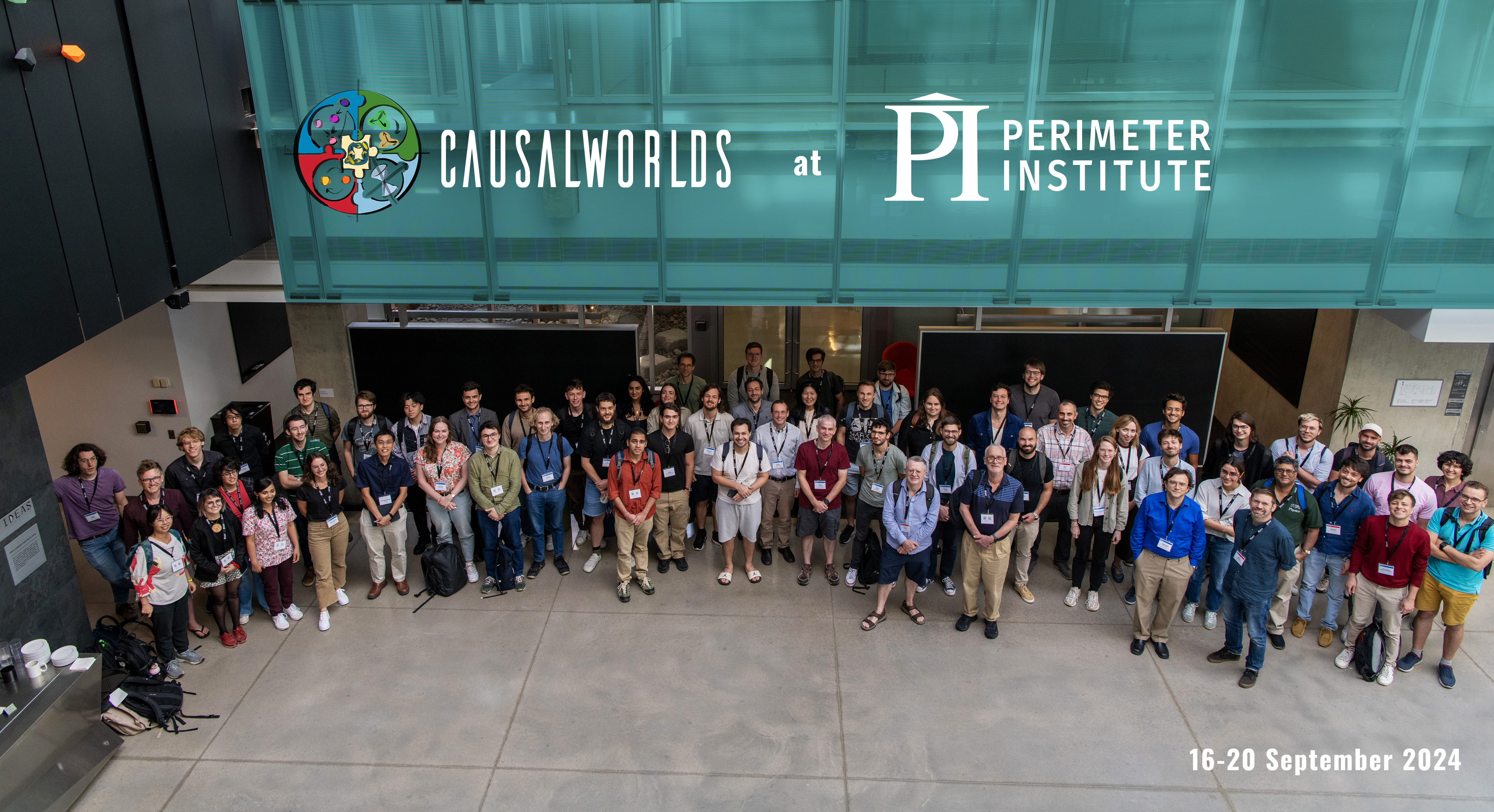
:: :: ::
Important dates
Paper submission deadline: 24 May 2024 // 31 May 2024
Paper notification: 3 July 2024 Registration deadline (with application for financial assistance): 18 July 2024
Registration deadline: 28 August 2024
Conference: 16-20 September 2024 Update: The submission deadline has been extended to 31st May 2024 for
papers which clearly justify their relevance for the following three
topics: 1) classical causal inference, 2) causality in relativistic physics (including quantum field theory and quantum gravity) and 3) experiments in causality. As we have received a sufficiently high number of submissions on the remaining topics (particularly indefinite causality and quantum causal models), the original deadline of 24th May still holds for submissions in this category. :: :: ::
Call for Abstracts
Prospective speakers can submit a paper for a contributed talk (in person or online) and/or a poster (in person only) via the Call for Abstracts. The Call for Abstracts is now open! Submissions for a talk will automatically be considered for a poster if not accepted for a talk.:: :: ::
Invited Speakers
Jessica Bavaresco (University of Geneva)
Cyril Branciard (CNRS, University Grenoble Alpes)
Rafael Chaves (Federal University of Rio Grande do Norte)
Giulio Chiribella (The University of Hong Kong)
Doreen Fraser (University of Waterloo)
Anne-Catherine de la Hamette (IQOQI Vienna)
Ciarán Lee (Spotify)
Tein van der Lugt (University of Oxford)
Joris M. Mooij (University of Amsterdam)
Mio Murao (University of Tokyo)
Alejandro Pozas-Kerstjens (University of Geneva)
Huw Price (Trinity College, Cambridge)
Renato Renner (ETH Zürich)
Thomas Richardson (University of Washington)
Sally Shrapnel (The University of Queensland)
Sumati Surya (Raman Research Institute)
Rainer Verch (University of Leipzig)
:: :: ::
Programme Committee
V Vilasini (ETH Zürich & Inria, University Grenoble Alpes) (PC Chair)
Augustin Vanrietvelde (Télécom Paris) (PC Co-chair)
Alastair Abbott (Inria, University Grenoble Alpes)
Časlav Brukner (IQOQI Vienna & University of Vienna)
Eric Cavalcanti (Griffith University)
Chris Fewster (University of York)
Lucien Hardy (Perimeter Institute)
Hlér Kristjánsson (Perimeter Institute & IQC & Université de Montréal)
Giulia Rubino (University of Bristol)
Nitica Sakharwade (Università degli Studi di Napoli Federico II)
Robert Spekkens (Perimeter Institute)
Jacopo Surace (Perimeter Institute)
Elie Wolfe (Perimeter Institute)
Lin-Qing Chen (ETH Zürich & IQOQI Vienna)
Hippolyte Dourdent (ICFO Barcelona)
Tamal Guha (University of Hong Kong)
Robin Lorenz (Quantinuum, Oxford)
Maria Papageorgiou (IQOQI Vienna)
Nicola Pinzani (Université libre de Bruxelles)
Marco-Túlio Quintino (Sorbonne Université, Paris)
Marc-Olivier Renou (Inria Paris-Saclay & CPHT, École polytechnique)
David Schmid (ICTQT, University of Gdańsk)
John Selby (ICTQT, University of Gdańsk)
Akihito Soeda (National Institute of Informatics, Tokyo)
Matthew Wilson (University College London)
:: :: ::
Scientific Organizers
Hlér Kristjánsson (Perimeter Institute & IQC & Université de Montréal) (Chair)
V Vilasini (ETH Zürich & Inria, University Grenoble Alpes)
Robert Spekkens (Perimeter Institute)
Lucien Hardy (Perimeter Institute)
Elie Wolfe (Perimeter Institute)
Jacopo Surace (Perimeter Institute)
Marina Maciel Ansanelli (Perimeter Institute)
Yìlè Yīng (Perimeter Institute)
María Ciudad Alañón (Perimeter Institute)
Daniel Centeno Díaz (Perimeter Institute)
Khushi Gandhi (Perimeter Institute & University of Waterloo):: :: ::
Previous editions:
Causalworlds 2022: The interface between quantum and relativistic causality, foundations and practicalities
Organised at ETH Zürich in 2022. Website: https://causalworlds.ethz.ch/" -
Quantum Theory (Core), PHYS 605, September 3 – October 4, 2024
14 talks-Collection NumberC24036The aim of the first part is to present a brief overview of selected topics in quantum theory. Schrodinger, Heisenberg and Interaction picture is discussed and applied to study time evolution. Density matrix and Feynman path integral are introduced. The second part of the course derives the Feynman rules for scalar quantum field theory and introduces renormalization. Instructor: Bindiya Arora / Dan Wohns Students who are not part of the PSI MSc program should review enrollment and course format information here: https://perimeterinstitute.ca/graduate-courses -
GPTs and the probabilistic foundations of quantum theory - mini-course
7 talks-Collection NumberC24021Classical probability theory makes the (mostly, tacit) assumption that any two random experiments can be performed jointly. This assumption seems to fail in quantum theory. A rapidly growing literature seeks to understand QM by placing it in a much broader mathematical landscape of ``generalized probabilistic theories", or GPTs, in which incompatible experiments are permitted. Among other things, this effort has led to (i) a better appreciation that many "characteristically quantum" phenomena (e.g., entanglement) are in fact generic to non-classical probabilistic theories, (ii) a suite of reconstructions of (mostly, finite-dimensional) QM from small packages of assumptions of a probabilistic or operational nature, and (iii) a clearer view of the options available for generalizing QM. This course will offer a survey of this literature, starting from scratch and concluding with a discussion of recent developments.
Mathematical prerequisites: finite-dimensional linear algebra, ideally including tensor products and duality, plus some exposure to category theory (though I will briefly review this material as needed).
Scheduling note: There will be 5 lectures from March 12-26, then a gap of two weeks before the final 2 lectures held April 16 & 18.
Format: In-person only; lectures will be recorded for PIRSA but not live on Zoom.
-
-
Causal Inference & Quantum Foundations Workshop
26 talks-Collection NumberC23017Recently we have seen exciting results at the intersection of quantum foundations and the statistical analysis of causal hypotheses by virtue of the centrality of latent variable models to both fields.
In this workshop we will explore how academics from both sides can move the shared frontiers forward. Towards that end, we are including extensive breakout collaboration opportunities in addition to formal presentations. In order to make concrete progress on problems pertinent to both communities, we have selected the topic of causal models with restricted cardinality of the latent variables as a special focus for this workshop.
Sponsorship for this workshop has been provided by:
Territorial Land Acknowledgement
Perimeter Institute acknowledges that it is situated on the traditional territory of the Anishinaabe, Haudenosaunee, and Neutral peoples.
Perimeter Institute is located on the Haldimand Tract. After the American Revolution, the tract was granted by the British to the Six Nations of the Grand River and the Mississaugas of the Credit First Nation as compensation for their role in the war and for the loss of their traditional lands in upstate New York. Of the 950,000 acres granted to the Haudenosaunee, less than 5 percent remains Six Nations land. Only 6,100 acres remain Mississaugas of the Credit land.
We thank the Anishinaabe, Haudenosaunee, and Neutral peoples for hosting us on their land.
-
Quantizing Time
36 talks-Collection NumberC21004 -
Quantum Gravity 2020
22 talks-Collection NumberC20031 -
Indefinite Causal Structure
26 talks-Collection NumberC19049There has been a surge of interest in indefinite causal structure the idea that cause and effect can no longer be sharply distinguished. Motivated both by experimentation with quantum switches and quantum gravity there can be situations in which there is no matter-of-the-fact as to what the causal structure of spacetime is. This meeting will bring together workers in Quantum Foundations and Quantum Gravity in both theoretical experimental physics to discuss the state of the art of current research and set new directions for this emerging subdiscipline.
-
PSI 2019/2020 - Quantum Theory (Branczyk/Dupuis)
14 talks-Collection NumberC19038PSI 2019/2020 - Quantum Theory (Branczyk/Dupuis) -
Foundations of Quantum Mechanics
17 talks-Collection NumberC18020The foundations of quantum mechanics have been revitalized in the past few decades by three developments: (i) the influence of quantum computation and quantum information theory (ii) studies of the interplay between quantum theory and relativity particularly the analysis of indefinite causal structure and (iii) proposals to reconstruct quantum theory from basic axioms. There have also been very interesting developments in understanding and classifying no=locality and contextuality using tools from sheaf theory and cohomology as well as operator algebras and category theory. The International Congress of Mathematical Physics is a natural forum for the discussion of these topics. In the past there have been satellite workshops on topics like Operator algebras and quantum statistical mechanics which also address fundamental issues. The modern study of quantum foundations is very much influenced and informed by mathematics: sheaf theory and cohomology category theory information theory convex analysis in addition to the continuing interest in operator algebras and functional analysis. The aim of the workshop is to bring together researchers who have made substantial contribution to the recent developments. The workshop will be held at Perimeter Institute over a five day period from July 30
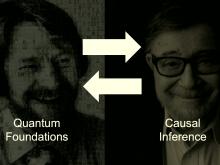
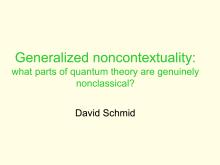
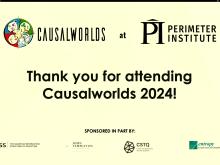
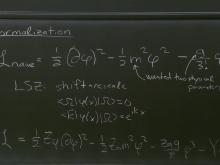
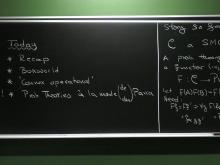
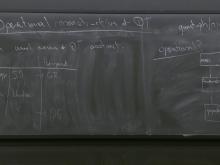
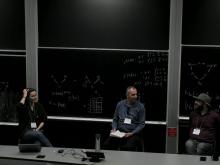
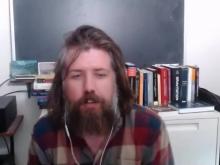
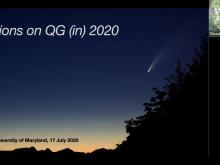
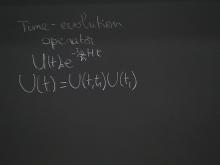
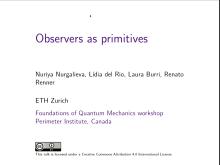

.png)
